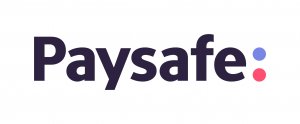Common Mistakes In Crypto Transactions
Many users still make mistakes with their cryptocurrencies. Check 3 common mistakes in crypto transactions and how to avoid them

Cryptocurrency, or crypto, is on the rise. In fact, from 2018 to 2020, its global user base increased by nearly 190%!
But what’s cryptocurrency? It is any form of currency that exists digitally or virtually. It is a peer-to-peer system, which means it doesn’t rely on third parties like banks for transaction verification. Crypto basically allows anyone to send and receive payments anywhere and anytime.
Another important thing to note about cryptocurrency is that it runs on blockchain or a distributed public ledger. Encryption through advanced coding makes storing and transmitting crypto data between wallets and to public ledgers secure and safe.
However, despite all the pros of cryptocurrency, one can’t deny the fact that many new users still face a steep learning curve. After all, crypto and its underlying concepts are unfamiliar to most people. And that often results in beginner mistakes. The problem is that these blunders—no matter how basic they are—often result in money lost or stolen.
Curious about the common mistakes in crypto and how to prevent them? Read on to learn more!
Transaction mistakes
The most common transaction mistakes include:
- Sending cryptocurrencies to the wrong address
Simple sending mistakes result in the loss of substantial amounts of cryptocurrencies each day. This blunder often happens when you don’t pay attention while entering the receiver’s wallet address.
Its impact
The problem is that while crypto is great for many things, refunds aren’t one of its fortes. There’s just no readily available support line that you can contact for help, unlike a bank. You’ll have to thank cryptocurrency’s overall censorship-resistant nature for that.
How to prevent it
One thing is for sure, though: sending coins to the wrong address can be fatal to anyone’s investment portfolio. What should you do to prevent this mistake? Just be extra careful while dealing with cryptocurrency transactions. Take as much time as necessary when entering the details. And don’t forget to double-check or even triple-check before hitting that ‘send’ button!
Blockchain transactions are irreversible, yes, but all hope isn’t lost if you’ve made this common mistake. There are resources that teach how to retrieve crypto sent to a wrong address. Do they work? There’s no guarantee. But take heart in knowing that Tether, a popular stablecoin, was able to recover and return a million worth of Tether to traders who sent their funds to the wrong platform in 2020.
- Forgetting transaction fees or setting them too low
Have you sent someone cryptocurrency but they’re yet to receive it, even after days? The transaction just stays pending. What do you think is causing it?
One of the reasons for pending transactions is the forgotten or too-low transaction fee. You see, over the past few years, the number of transactions on crypto networks has increased significantly. And it’s clogging up the network. That’s why miners prioritize transactions with higher fees. Cryptocurrency transactions are sent in batches or blocks. Each block’s capacity is limited. It’ll depend on the transaction fee if yours will be included or not.
Its impact
So does a ‘stuck transaction’ mean a permanent loss of funds? No. They’ll get confirmed eventually once the transaction volumes decrease. But, of course, not everyone can wait or cope with stuck transaction’s inconvenience, right?
How to prevent it
What can you do to avoid this common mistake? Don’t forget to include a transaction fee the next time you send cryptocurrency. And when setting the fee, ensure you set it high enough. Most wallets will let you decide over it anyway. Speaking of manually setting the fee, select a transaction priority and set it to high priority, which would mean a higher fee but also results in quick transaction confirmations.
Crypto gives users the opportunity to be their own bank. And that comes with many advantages. However, it also means users, especially newbies, can encounter confusing situations. Having a stuck transaction is a good example. Avoid the hassle by ensuring you include a fee for every transaction and that you’re setting it high enough to be prioritized.
- Ignoring tax implications
Did you know that all crypto transactions are subject to tax by the US Internal Revenue Service (IRS)? It means that trades, sales, and even the smallest of purchases must be reported. The problem is that many cryptocurrency users neglect this responsibility. Why? That’s mainly because of the misconception about crypto being anonymous and untraceable.
Here’s the thing: the IRS can track crypto transactions. More than 21,000 different cryptocurrencies followed Bitcoin’s footsteps since its inception. So the IRS, unsurprisingly, has already developed sophisticated tracking tools for that purpose. Underestimate their ability at your peril.
Its impact
So what happens when you fail to report your transactions? Well, as expected, this mistake can have serious consequences. Eventually, the IRS will catch up with you. And when that happens, penalties will follow. Worse is you may face criminal charges for it.
How to avoid it
Of course, the best thing to do is to report all your cryptocurrency transactions accurately. It’s also a good idea to maintain accurate records of every transaction. How? Use specialized tax software for that. These tools can also help you determine your cost basis for every crypto asset. Speaking of cost basis, just guessing or averaging it is another tax mistake you must avoid. It results in inaccurate reporting, which also has corresponding penalties.
Other things you mustn’t do are ignore or misreport airdrops or free tokens or coins. Not filing because you know you can’t pay is also a big mistake. It would only mean additional penalties and interest charges. It’s better to file everything and talk to the IRS to come up with a payment plan than not filing at all!
Being on top of your tax obligations as a crypto user doesn’t mean you won’t look for opportunities to reduce your tax liability, though. For instance, if you’ve sold some cryptocurrency assets for less than what you paid to acquire them, you can claim capital losses on your tax return. Doing so saves you money you can use to invest more in crypto.
Final thoughts
Crypto is becoming more mainstream. However, users, especially beginners, still make mistakes with their cryptocurrencies. The abovementioned blunders are only in the transactional aspect of cryptocurrency. You can’t discount mistakes that also compromise security, such as losing private keys or seed phrases and keeping crypto on unreliable online wallets. Add to it the still high number of people falling victim to scams, which hit a record USD$20 billion in 2022. All these things tell us one thing: cryptocurrency still has a long way to go. But it’s definitely progressing rapidly!









